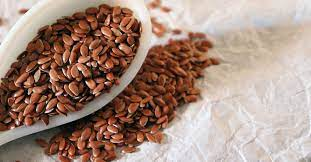Omega Fatty 3: To stay healthy, it is important to have all the nutrients in our body. To supply these nutrients in the body, people often include various foods in their diet, which provide them with essential vitamins and minerals. At the same time, we make some nutrients ourselves. Fat is one of these, which the human body produces on its own, but Omega 3 fatty acid is a fat that comes in the category of essential fat. This means that the body cannot produce Omega 3 fatty acids on its own, so it must be introduced into the body through food.

What is Omega 3 Fatty Acid?
Omega 3 fatty acid is a polyunsaturated fatty acid (PUFA). It is an integral part of the formation of the cell wall. This is a kind of healthy fat. These are called healthy because they are beneficial for the heart and protect from many heart-related risks.
Benefits of Omega 3
-
Reduces triglyceride levels
- Increases good cholesterol (HDL)
- reduces blood pressure
- balances blood sugar
- Reduces the risk of death due to arrhythmia (irregular heartbeat)
- Reduces the risk of many types of cancer such as breast cancer
- Prevents Alzheimer's disease
- Reduces the risk of dementia
- Reduces the risk of cardiovascular disease
- Beneficial for skin and eyes
What to eat to get Omega 3?
- Fish (salmon, tuna, etc.)
- cod liver oil
- Walnut
- flax seeds

- chia seeds
- beans
- Beans
- Soy Beans (Edamame)
- leafy vegetables
- Egg
- Omega 3 supplements or capsules
Also, keep in mind
However, balance is important in any type of eating habit, hence care has to be taken not to consume more than required, otherwise its risks may increase due to excess quantity. Consuming 1 to 2 grams daily maintains its balance.
Disclaimer: The advice and suggestions mentioned in the article are for general information purposes only and should not be taken as professional medical advice. If you have any questions or concerns, always consult your doctor.
Picture Courtesy: Google










